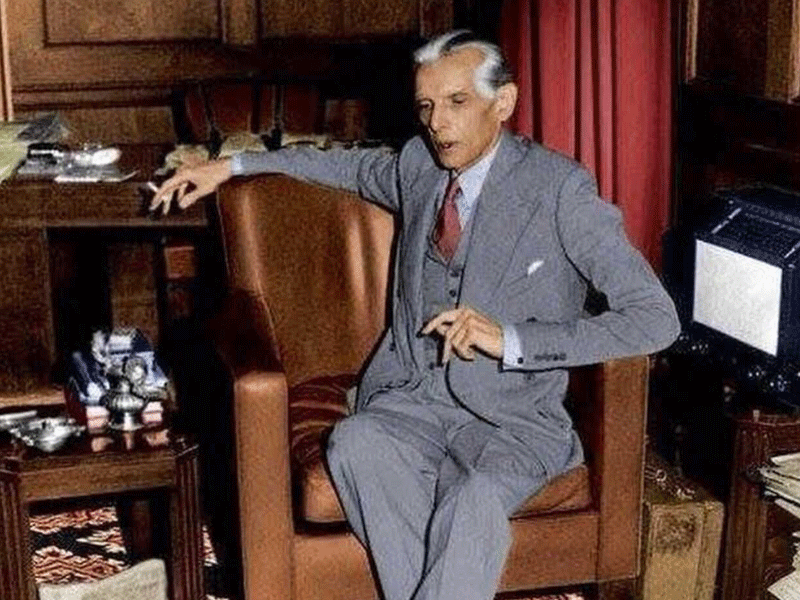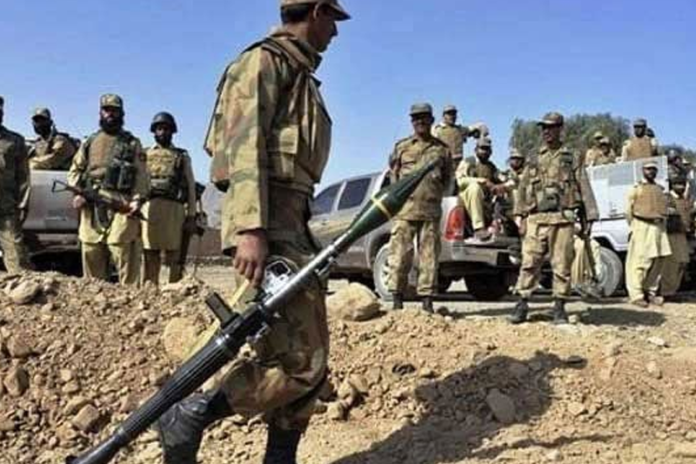The founder of the nation
“JINNAH”

- 344
- 0
Muhammad Ali Jinnah is the founder of Pakistan. He was a great leader with an ambitious vision for his people and their land, which he never stopped fighting to make happen - even from behind prison bars in London during WWII.
Quaid-e-Azam is the most outstanding leader of our history. During the establishment of Pakistan, he was remembered as an influential leader who brought Islam from slumber by calling for Muslims to live according to Islam's teachings without Hindu influence.
His real name was Muhammad Ali Jinnah; he was born into wealth on 25th December 1876 near Karachi, where he spent most days reading books about law at home. He collected all the Muslims on one platform. He created a spirit of unity and fought against Hindus and the British.
Mr. Poonja Jinnah's eldest son grew up being groomed as heir apparent by both parents; though it would be ultimately his father who sent him off at age 16 to study law abroad- first England, then later Lincoln Inn where Muhammad passed Bar-at-Law before returning home only two years later feeling fully qualified to take over managing family business interests when necessary but also ready open own legal practice if desired upon return Muhammad Ali Jinnah became one of. After four years of exile in London, Muhammad Ali Jinnah returned to his Bombay law firm. He quickly became a successful lawyer and by 1900 was appointed magistrate for the region's presidency.
During this time, he noticed that while both Hindus and Muslims were united against England, it seemed like Hindu leaders had their interests at heart rather than those of India as a whole. To join with other Indian groups who shared similar beliefs about British colonization - namely Muslim ones - Quaid-e-Azam left behind practicing law on behalf of Indians living abroad (a job which would be crucial later) so that he could take up leadership positions among organizations whose goals aligned more closely with what came to form Pakistan's identity.
The Quaid-e-Azam, or "Great Leader," was a human rights activist who dedicated his life to the liberation of Pakistan. He worked for Muslims in India and presented their concerns with fourteen eloquent points rejected by Congress.
His efforts did not go unrewarded; after enduring many hardships, he remained steadfast in achieving freedom for Muslim people, known as East Pakistan (now Bangladesh). During this time, Quaid's speeches affirmed all aspects of what would become an independent state: its culture, language, and economy - everything from top to bottom. Muhammad Ali Jinnah was a thin and lean man but he had great qualities of head and heart. He overcame his frail body with determination, courage, faithfulness to the cause for which Pakistan would be created- namely that there should never again exist in this world any discrimination against Muslims on account of their being followers of Islam or because they live in a part of the world called Asia; nor will anyone have power evermore to humiliate them as long as they preserve these cardinal principles: Unity - Discipline - Faith. Muhammad Ali Jinnah possessed all three attributes--unity, discipline, and faith.
This drove him day after day towards achieving his goal-a a Muslim country where people are treated equally regardless if they were religious or not. Pakistan was established due to the bloodshed of thousands of freedom fighters and Jinnah's leadership. The country wouldn't have existed without him. Quaid-e-Azam was a man of his word and one of the greatest spokesmen. Mahatma Gandhi called Quaid-e-Azam “an impossible man” due to his determinacy over his principles. Jinnah always stood like a rock in front of his enemies and never backed down.
In 1933, Jinnah became the leader of the Muslim League. In 1940, the Pakistan resolution was drafted by The Muslim League at Minar-e-Pakistan. After the Pakistan Resolution was passed, Quaid-e-Azam worked tirelessly day and night and did not care about his health at all, slowly his health started deteriorating but he never stopped working. It was due to Quaid-e-Azam’s tireless efforts that Pakistan came into being on the 1947, 14th of August. A man of his words, he was always as firm as a rock in the face of enemies and never faltered. In 1930, he became the authoritative leader of all the Muslims in the subcontinent, and he led the Muslim League from 1933 to 1935. Muhammad Ali Jinnah founded Dawn, a newspaper significant for delivering the League's perspective, in 1941.
After becoming president of the Muslim League, Jinnah was drawn into a conflict between a pro-Congress and a pro-British faction. Jinnah believed the state of Pakistan should be based on authentic Islamic culture, civilization, and national identity rather than a theocratic interpretation of Islam.
Jinnah is regarded as Pakistan's founding father, a man devoted to safeguarding Muslim interests during the dying days of the British Raj. Most of the Pakistanis take Jinnah as a hero and an inspiration. From the 1930s, Jinnah suffered from tuberculosis; only his sister and a few others close to him were aware of his condition. After independence, Quaid-e-Azam became very ill as he worked tirelessly. His motto is work, work and work. He remained alive for 13 months, and at last this great leader and hardworking man passed away on September 11, 1948, at the age of 71. He was buried in his home town Karachi that witnessed the entire nation mourning over an irreparable lose.
Published in The Daily National Courier, November, 01 2022
Like Business on Facebook, follow @DailyNCourier on Twitter to stay informed and join in the conversation.

















































